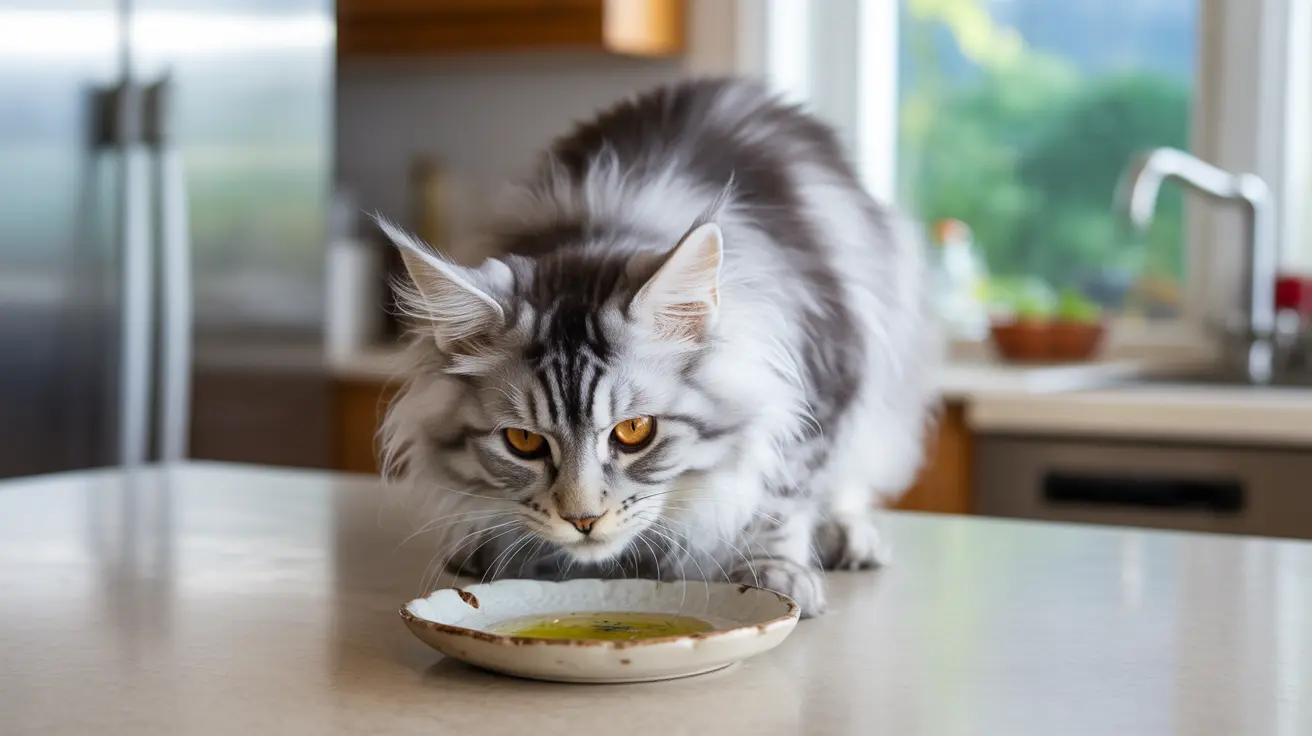As pet owners increasingly explore natural supplements for their feline friends, many wonder about the safety of sesame oil for cats. While this golden oil offers numerous health benefits for humans, its effects on our feline companions require careful consideration and understanding.
In this comprehensive guide, we'll explore everything you need to know about sesame oil and cats, including safety considerations, potential benefits, and important precautions to keep your furry friend healthy.
Understanding Sesame Oil and Cats
Sesame oil, while not toxic to cats, should be approached with caution. Cats are obligate carnivores, meaning their digestive systems are specifically designed to process meat-based proteins rather than plant-based oils. While small amounts of sesame oil won't harm your cat, it's essential to understand its proper use and limitations.
Safe Usage Guidelines
When considering sesame oil for your cat, moderation is crucial. Veterinarians recommend limiting servings to no more than half a teaspoon once a week, and even less for smaller cats or those with sensitive stomachs. Always start with just a few drops to test your cat's tolerance.
Never add sesame oil directly to your cat's food without first consulting your veterinarian, especially if your cat has existing health conditions or is taking medications.
Potential Benefits and Limitations
While sesame oil contains beneficial compounds like omega-3 and omega-6 fatty acids, antioxidants, and vitamins, these benefits are primarily documented in humans rather than cats. Some potential benefits may include:
- Mild support for skin and coat health
- Possible assistance with hairball prevention
- Minor digestive aid properties
- Antioxidant properties
Risks and Warning Signs
Despite its general safety, sesame oil can cause adverse effects in cats when used improperly. Watch for these warning signs:
- Digestive upset or diarrhea
- Vomiting
- Loss of appetite
- Lethargy
- Abdominal discomfort
If your cat displays any of these symptoms after consuming sesame oil, discontinue use and consult your veterinarian immediately.
Alternatives and Better Options
Before turning to sesame oil, consider that most cats receive all necessary nutrients from high-quality commercial cat food. If you're looking to address specific health concerns, discuss these options with your veterinarian:
- Specially formulated hairball prevention foods
- Veterinary-approved supplements
- Species-appropriate dietary adjustments
Frequently Asked Questions
Is sesame oil safe for cats to consume, and how much can I give them?
Yes, sesame oil is generally safe for cats in very small amounts. The recommended maximum is no more than half a teaspoon once a week, but start with just a few drops to test tolerance. Always consult your veterinarian before adding any supplement to your cat's diet.
Can sesame oil help with my cat's hairballs or digestive issues?
While sesame oil may help as a mild digestive aid, it should not be your first solution for hairballs or digestive problems. Consult your veterinarian for more effective, cat-specific treatments designed to address these issues.
What are the possible side effects of feeding sesame oil to cats?
Common side effects can include digestive upset, diarrhea, vomiting, and decreased appetite. In rare cases or with excessive consumption, more serious complications like pancreatitis could develop.
Are sesame seeds safe for cats, and should I give them to my cat?
While not toxic, sesame seeds offer limited benefits for cats and could pose choking hazards or get stuck in their teeth. It's best to avoid giving your cat sesame seeds.
Should I use sesame oil as a regular supplement or replacement for my cat's food?
No, sesame oil should never replace regular cat food or be used as a daily supplement. Cats need specifically formulated pet food that meets their unique nutritional requirements as obligate carnivores.
Conclusion
While sesame oil is not toxic to cats and can be safe in minimal amounts, it's not a necessary addition to your cat's diet. Focus instead on providing high-quality, balanced cat food and consult with your veterinarian about any specific health concerns. Remember that what works for humans may not be beneficial or necessary for our feline companions.






